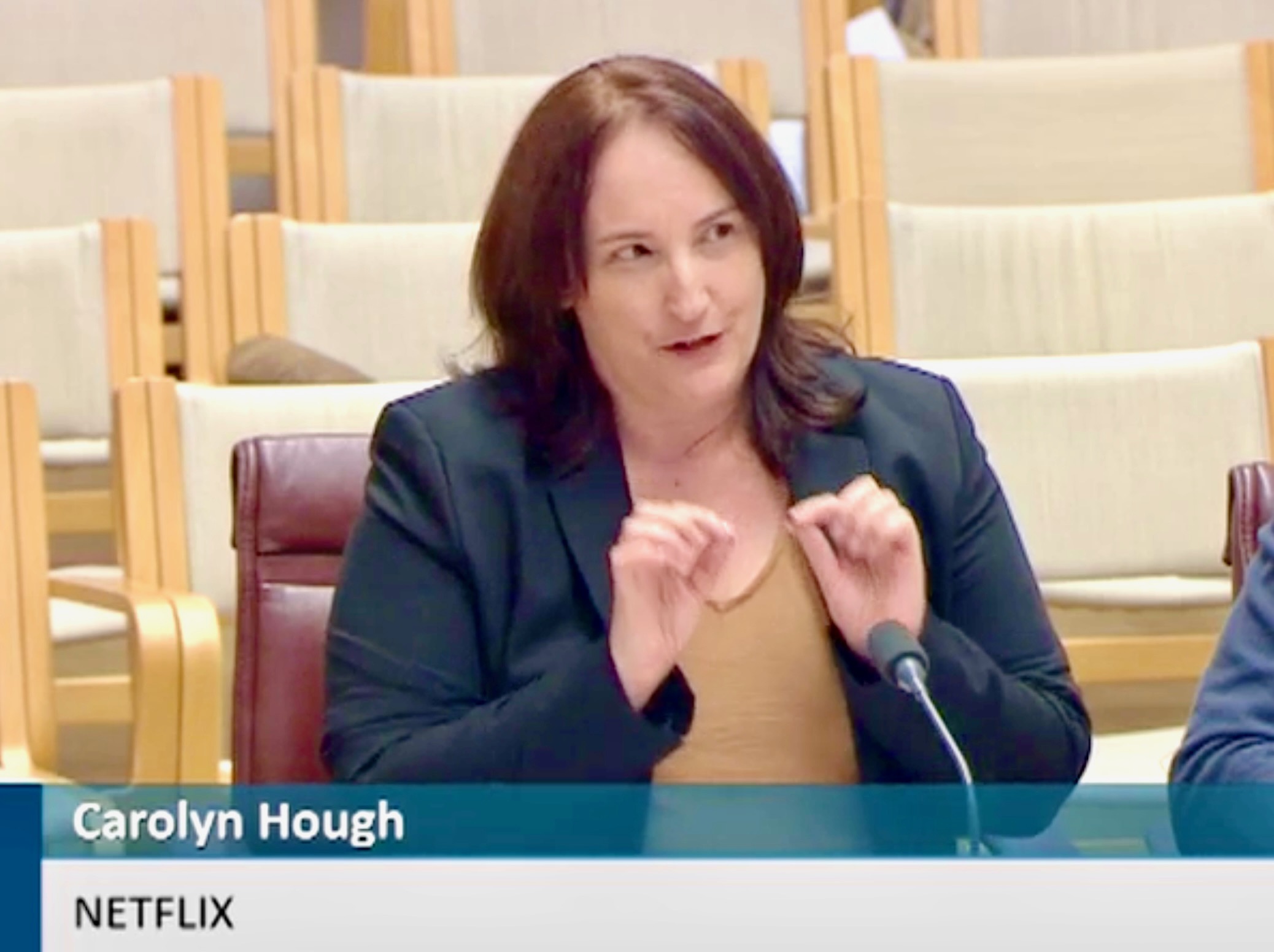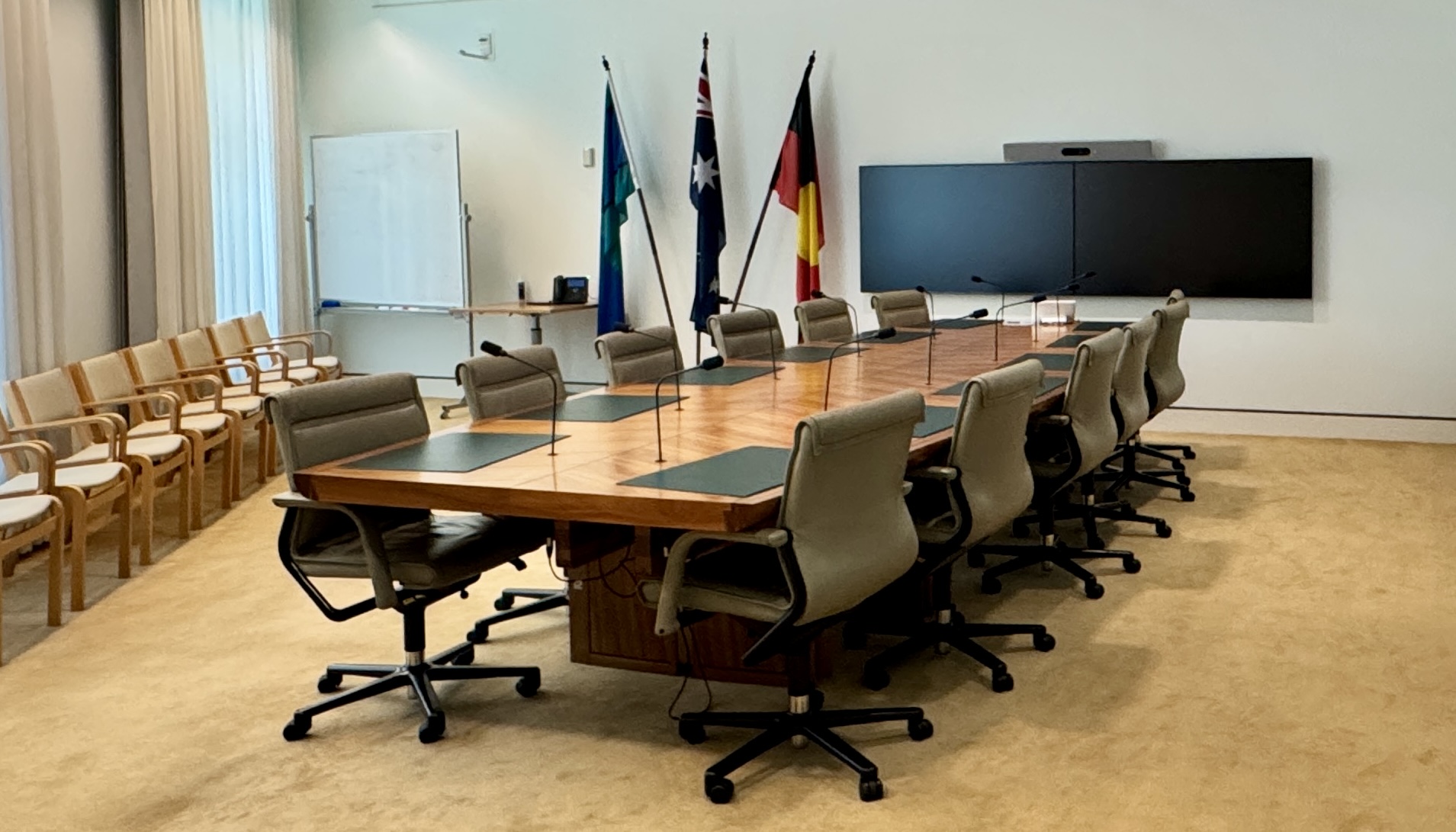OUR MEDIA CENTRE
Providing quick & easy access to our IN media coverage & relevant documents.
Carolyn is a highly regarded expert and accomplished public speaker. Her views have been sought by major media outlets including The Sydney Morning Herald, The Australian, The Canberra Times, Lawyers Weekly, Crikey, Stuff NZ, ABC Radio National and Radio National NZ. She has shared her expertise at seminars for a wide range of organisations, including the Australian Institute of Company Directors, the Communications and Media Law Association of Australia, the International Institute of Communications, and the Copyright Society of Australia.
If you are looking for a well-versed, highly skilled and experienced specialist to present to your committee, at an event as a keynote speaker or to be part of a panel please reach out with the particulars, so that Carolyn can review your request.
media centre
presentations.
panels.
keynotes.
Link to article.
Leading key speakers and opening the event I was proud to represent the key recipient of this first event designed by local business woman Karen from Skin Correctives – to raise much needed funds and drive awareness of Dress for Success NSW/ACT. This event was a long ladies lunch that raised just shy of $11k on the day, and also resulted in a $25k donated media campaign with Wave Fm.
Link to relevant information
Link to relevant information.
Link to relevant information.
Link to relevant information.
Link to relevant information.
Link to relevant information.
Implications of the recommendations in the ALRC’s Discussion Paper regarding “Copyright and the Digital Economy” may have on the following media sectors:
- Free to air television
- Music
- Internet and online
Link to relevant information.
Link to relevant information.
PANEL: INCENTIVES FOR INNOVATION: CULTIVATING THE RIGHT ENVIRONMENT FOR CREATORS AND DIGITAL PLATFORMS Speakers: Brian Carver, Dean Ormston, Paul Wiegard, Jose Antonio Sanmartin Chair: Carolyn Hough
Still have questions?
Get in touch
media centre
blog posts
& articles.
Link to relevant information.
Written [as Carolyn Dalton)
Link to relevant information.
‘Shrink-wrapped’ licences: can they defeat the copyright laws? The Canberra Times, 18 November 2002, by Carolyn Hough and Michael Cooley A recent decision by a U S District Court could erode consumer rights under copyright law. The case in point concerned a ‘shrink-wrap’ licence which prohibited the reverse engineering of a piece of software. Reverse engineering is deemed a ‘fair use’ under U S copyright law.
Link to relevant information.
Still have questions?
Get in touch
media centre
media
articles.
Representatives for Netflix agreed that ranking free-to-air content first had the potential to disrupt viewing habits.
Netflix’s policy advisor Carolyn Hough said viewers should remain in control rather than have the order of content regulated.
“We really need to make sure that we’re preserving that flexibility and the capacity for devices to dynamically adapt,” she said.
“We really struggle with the proposition that if someone searches ‘Australian movie’ only Australian movies that are on free-to-air are surfaced in those search results.
“Our concern with free-first is that it has the potential to get in the way of that consumer experience.”
Ms Hough argued if someone had started watching a program that was available on both free and paid services on the paid platform, the requirements may make it more complicated to continue to do so.
“We want to defend the rights of Australians to be in charge of their viewing choices,” she said.
Link to relevant information.
Netflix policy advisor Carolyn Hough agreed, adding it was ‘quite unfair’ to creators involved in making Australian movies with the streamer, if search results only showed content from free-to-air TV.
‘We really need to make sure that we’re preserving that flexibility,’ she said.
Link to relevant information.
Link to relevant information.
The Federal Government plans to sell its remaining stake in Telstra on the stockmarket. Surely, analysts would have to factor into the calculations of the share value of Telstra the greater costs associated with copyright management under the regime, and the higher risks of suits for copyright infringement.
In the debate over the AUSFTA, the behemoths of the telecommunications industry belatedly lobbied against further amendments in the Copyright Amendment Act 2004 (Cth). David McCulloch of Optus, along with Carolyn Hough of Telstra, commented:
We believe the new provisions go further than the provisions required by the FTA, or side letters to the FTA. In fact, the two provisions go even further than the provisions required by U.S. copyright law, leaving Australian ISPs in a worse position than our colleagues in the U.S. [156] |
Notwithstanding such concerns, the Federal Government passed the Copyright Amendment Act 2004 (Cth). They sought to allay the fears of Telstra and Optus by emphasising that regulations could resolve any potential problems.
Link to relevant information.
Link to relevant information.
Still have questions?
Get in touch
Newsletter
Get great articles direct to your inbox.
If you would like to stay in the loop with our monthly round-up of news updates.


